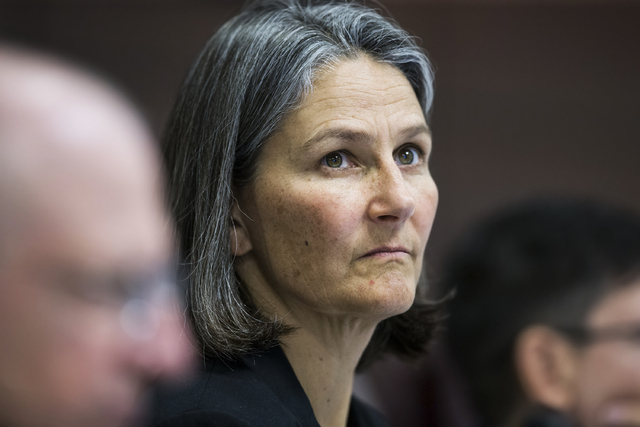Records bill would gut public’s right to know

Nevada’s Public Records Act needs vigorous defenders, because politicians, like Sen. Julia Ratti, D-Sparks, keep trying to gut it.
During Monday’s marathon floor session, Ratti proposed SB384, which would fundamentally alter the public’s right to find out information about public employees. Currently, unless requested information fits into one of the many exemptions listed in state law, the law presumes information about public employees is public.
Under SB384, the only information the public could obtain about a public employee is his or her name, employer, position and cost of salary and benefits. “All other information about an employee of a public employer which is contained in a record or file in the possession, control or custody of a public employer is confidential,” reads SB384.
“All” would have far-reaching implications. Good luck finding out basic information on your child’s school. Under SB384, a public school’s website couldn’t list the emails of its employees. Since principals and teachers work for the school district, not the individual school, even a listing of which staff members work at which school would be confidential.
If SB384 was law, this straightforward press release from the Nevada Department of Education would be full of “confidential” information.
“John Tierney of Adobe Middle School in Elko County School District was named Nevada’s 2016 Michael Landsberry Teacher of the Year in a ceremony at the school,” announced NDE in December 2015. “Tierney has been teaching English and Social Studies at Adobe Middle School for 25 years.”
The SB384-version of that press release would read, “John Tierney works for the Elko County School District.” That’s because the school he works at, subjects he teaches and length of tenure are all bits of information about a public employee contained in a government record.
The only good part of the bill is that it explicitly states what the Nevada Supreme Court has already affirmed — that the names and payout amounts of public retirees are public records. Ratti should amend the bill to allow the public to also find out other needed information on retirees, including years of service, year of retirement and benefit type.
Barry Smith, executive director of the Nevada Press Association, has expressed to Ratti that the bill is “too broad” and thinks she’s open to amending the bill.
That’s encouraging, but until and unless SB384 contains the presumption that records are open unless exempt — instead of that they’re confidential unless listed as public — the bill needs to die.
Victor Joecks’ column appears in the Nevada section each Monday, Wednesday and Friday. Contact him at vjoecks@reviewjournal.com. Follow @victorjoecks on Twitter.